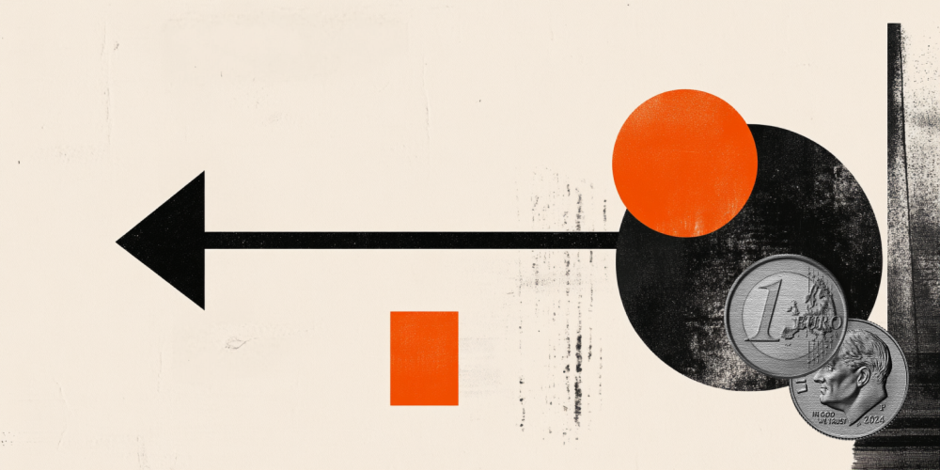Bulgaria poised to join the Euro

Bulgaria is due to become the 21 st country to join the European single currency in January 2026. This explains the timing and circumstances surrounding the country’s likely admission to the euro area.
The European Commission and the European Central Bank have announced that Bulgaria meets the euro convergence criteria. Is Bulgaria now expected to adopt the euro?
January 2026 appears to be the likely accession date. The process has been many years in the making, but Bulgaria has made meaningful progress.
Bulgaria is on track today to join the euro but encountered delays in recent years. Were they warranted?
If Bulgaria had been admitted sooner into the euro area’s waiting room – the Exchange Rate Mechanism II (ERM II) – the country may have finalised its euro entry sooner. But before Bulgaria’s entry into the ERM II in 2020, there were political reservations within the euro area about the eastward expansion of the bloc.
Since 2020, though, the further delays since entering ERM II have been warranted. The global cost-of-living crisis contributed to high inflation leading to a temporary divergence from the price-stability criterion until very recently. This contrasts with Croatia, which entered ERM II at the same time as Bulgaria but became a euro area member in January 2023.
Political instability in the recent years has created economic uncertainties and delays to reforms. There have been seven general elections just since 2021, for example, and divisions remain between political parties around the subject of the euro. But divergence from the price-stability criterion alone may have ruled out euro adoption before January 2026.
Is recent EU support for Bulgaria’s euro entry the result of changing geopolitics and a push to deepen integration or just a reflection of the country’s success in meeting the quantitative criteria?
Accession may have been supported by the current geopolitics. Incentives for the EU to deepen and broaden the union have grown since the escalation of the Russia-Ukraine war and likely grew further after the US presidential elections. Traditional post-war alliances have fractured, resulting in a more divided and less predictable world. That may have resulted in greater goodwill from Brussels on subjects strengthening the union.
The fault lines in Bulgaria between pro-European forces calling for a deepening of the union, and those favouring rapprochement with Russia, are playing out daily in the nation. The EU recognises that any further delay in accession might place euro entry in fundamental doubt given anti-euro movements inside Bulgaria. But the core reason as to why Bulgaria is due to adopt the euro is because the country has undertaken the necessary reforms and now meets the criteria.
How will euro adoption affect the Bulgarian economy?
Joining the single currency should support the stability of Bulgaria’s highly euro-ised economy, enhance monetary policy flexibility, and improve borrowing conditions. Euro adoption will anchor trend growth, which Scope Ratings (Scope) has estimated around 2.75% a year, and may accelerate convergence towards average European Union living standards.
Opinion polls suggest around a half of Bulgarians oppose adopting the euro. Could that be a problem?
Bulgarians are not the first people of a country preparing to adopt the euro who have proven sceptical about the benefits ahead of accession. But support for the euro tends to rise after the adoption of the single currency as the worst fears of many turn out to be unfounded.
Inflation is a case in point. Rather than increasing inflation as some Bulgarians fear, entering the euro should reduce inflation over time as integration within the euro bloc trims transaction costs. Borrowing costs as a member state of the euro area should be lower than they would be if Bulgaria stays outside.
Should the EU be concerned that Bulgarian governments might ease budgetary discipline and endanger the stability of the currency union after euro entrance?
Bulgaria has a record of fiscal discipline, recording modest budget deficits and low public debt. The recent years of more elevated budget deficits of around 3% of GDP – the Maastricht Treaty threshold – and rising public debt have been partly the result of heightened political instability, including recurring general elections and the associated populist policy responses.
I believe we are unlikely to see any overt slippage of budgetary discipline after euro admission. Croatia is a good example of a nation keeping fiscal discipline after it joined the euro. Euro-area member states need to meet specific fiscal rules. They must submit annual draft budgets for European Commission evaluation under the European Semester, a process that non-euro EU member states do not need to do.
The EU fiscal framework, including the Stability and Growth Pact and Excessive Deficit Procedure, remains firmly in place. As the political instability associated with divisions around euro adoption is partly responsible for the recent budgetary slippage, settling the question of the euro for a generation may alleviate some of the political fault lines and curtail certain government spending risks.
(Brian Marly, senior analyst in sovereign ratings at Scope and lead sovereign analyst for Bulgaria, contributed to writing this Q&A).
Author

Dennis Shen
Scope Ratings
Dennis Shen is Chair of the Macroeconomic Council and Lead Global Economist of Scope Ratings, the European rating agency, based in Berlin, Germany.
















